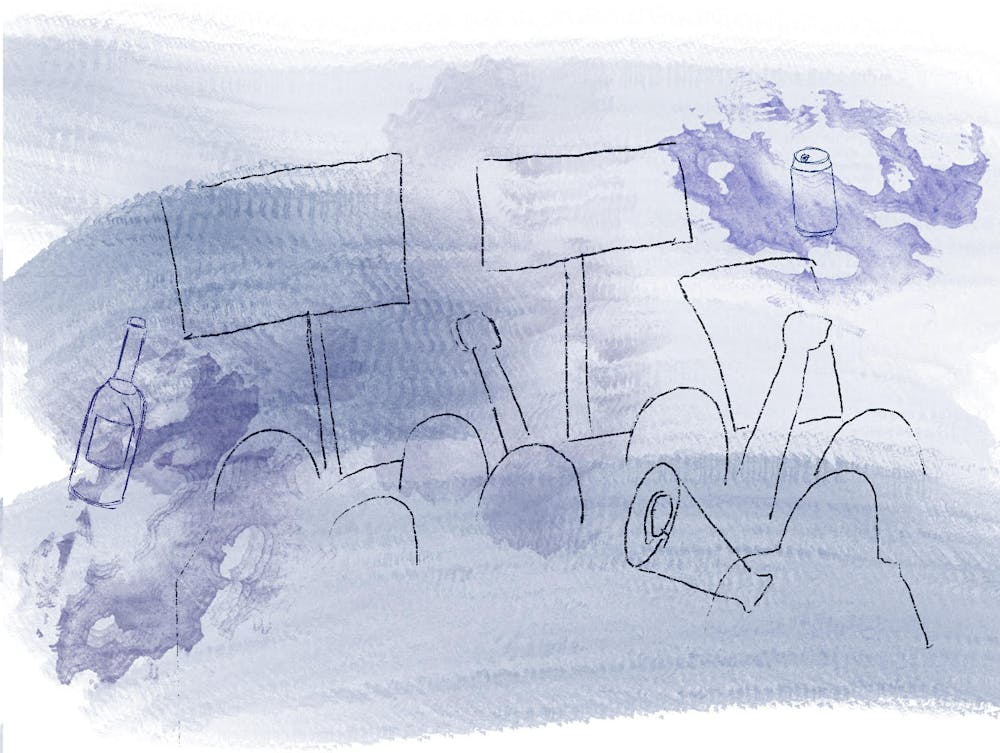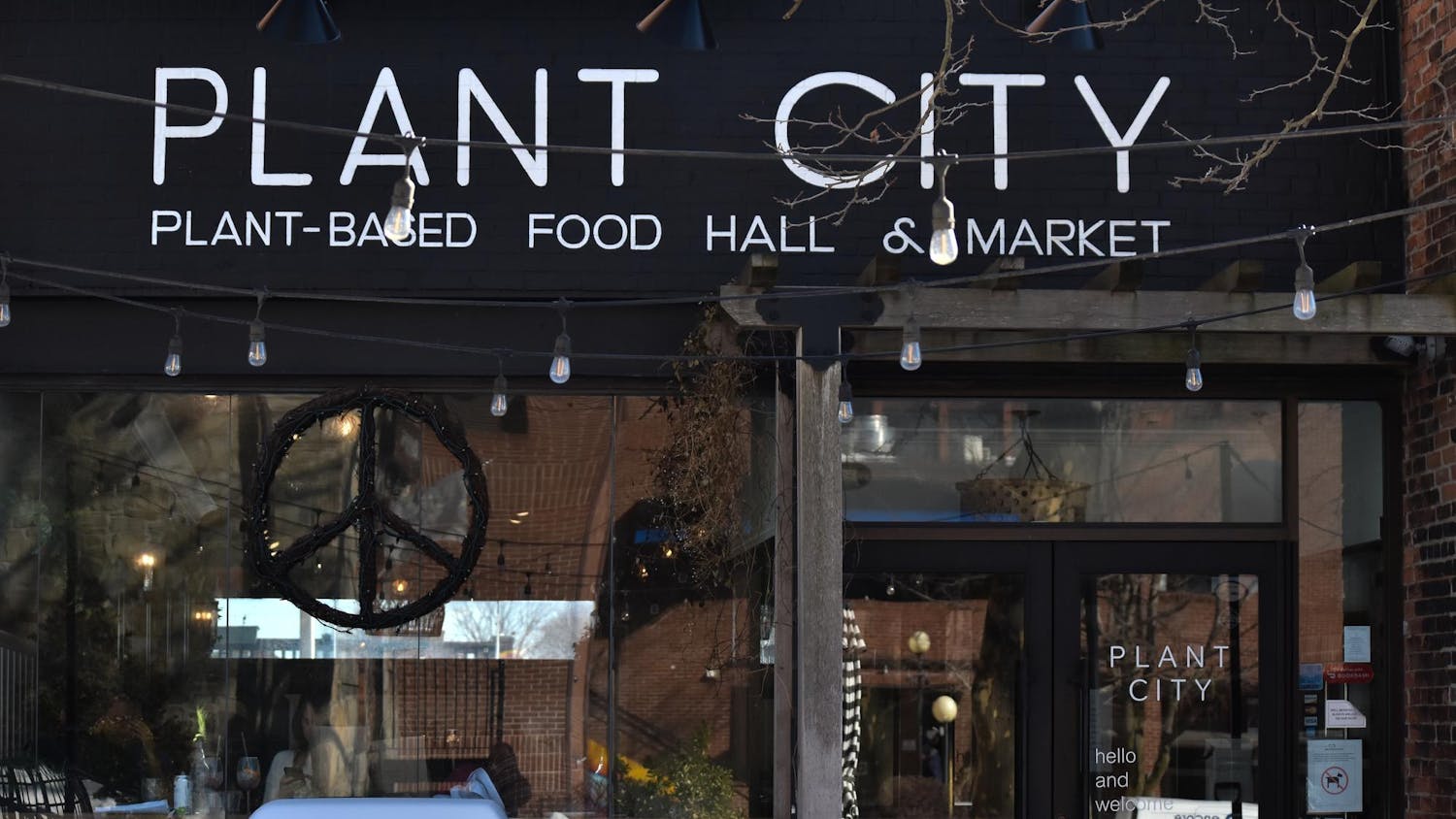In pursuit of a contract with Johnson Brothers Rhode Island, a local beverage distribution branch, distribution workers and delivery drivers across the state spent the hot summer months picketing outside factories and businesses using the company. Together, the workers pursued a contract that would provide increased wages, better work conditions and other benefits aligned with industry standards. Yet even as this past September came to a close, some protest organizers were worried about the lack of progress made, stating that the company had by and large overlooked their demands.
In September 2020, JBRI delivery drivers unanimously voted to unionize with Teamsters Local 251, a local labor rights organization that “represents over 6,300 workers in a wide variety of industries throughout Rhode Island and parts of southern Massachusetts,” according to the International Brotherhood of Teamsters website.
“From that point on, we began to negotiate the first-time collective bargaining agreement,” said Matt Maini, Teamsters’ business agent representative for beverage parcel and construction divisions.
The main goal of the union’s bargaining since its inception has been a contract encompassing improvements to JBRI employees current benefits and working conditions.
“Union workers, ... when they work under a contract, tend to be more productive workers (and) tend to be long-term committed to their companies,” Maini explained. “So we’re hoping that we can give these workers dignity or respect on the job, which is a union contract.”
Specific contract demands include a procedure for grievance arbitration within the company, vacation and sick time, increased wages, affordable health care and a pension for employees, who, Maini added , generally work between 12 and 15 hours per day.
But despite solidarity among JBRI workers in pursuit of a contract, Maini stated that JBRI was not receptive to the union’s demands.
“We were not able to come to terms or get an agreement because (JBRI) had no intentions of ever signing a contract with the union,” Maini explained. JBRI proposed a five-cent hourly wage increase to their normal raises and “rejected improvements to healthcare coverage and retirement security,” according to the Teamsters Local 251 website.
As a result, on May 26, 2021, workers affiliated with the union walked off of the job in a work stoppage, refusing to return to their positions until the company would participate in contract negotiations according to the workers’ needs.
According to Maini, JBRI workers currently receive an average pay of $15 per hour, which he said is significantly lower than similar companies in the state whose starting rate is near $23 an hour. In addition, workers pay up to $20,300 annually as a healthcare deductible for their families, which takes away a significant portion of their earnings and further necessitates company support in increasing wages and providing accessible healthcare, Maini said.
The union is “hoping that they can have affordable health care because healthcare is a right, it’s not a privilege,” Maini added.
Steve Brantner, Johnson Brothers’ communications director, wrote in an email to The Herald that the company does not comment on active negotiations.
“Basically, we want (JBRI) to get to industry standards when it comes to everything,” Charles Reid, a delivery driver for JBRI, told The Herald during an Aug. 29 protest at a Smithfield, Rhode Island restaurant using JBRI as a drink distributor. “We’re tired of not having good healthcare, bad working conditions, … we just want industry standards. That’s all we want.”
Along with several other JBRI delivery drivers, Reid has gone to businesses throughout Rhode Island to picket their usage of the beverage distributor and hand out flyers outlining their grievances with JBRI.
“We’re going around to let people know what JBRI actually does to people who work for them,” Reid explained. Historically, this has included not supporting the needs of delivery drivers and hiring “scabs,” new delivery drivers who are typically from out of state and not members of the Teamsters Local 251 union, Reid explained. “We just basically inform the public about that.”
“We go to stores who take deliveries and accept deliveries and ... remind their customers that this store is aiding and helping a corporation who is not willing to sit down and discuss affordable health care or issues for workers,” Maini noted.
As of Sept. 18, the union had gone to 239 businesses across the state that use JBRI as a distributor, where they protested outside and attempted to discuss the distributor’s treatment of its workers with business owners. Pickets had also followed scab drivers to delivery sites and picketed there, Maini added. According to Maini, small businesses tend to be receptive to the workers’ protesting and demands, whereas larger companies and chain stores tend to be less so.
“We remain committed to bargaining in good faith with Teamsters Local 251 and to successfully negotiate a contract,” Brantner wrote. “We also remain committed to providing fair and competitive wages and benefits — and continuing to make our company a great place to work with strong family values,” Brantner added, “just as we have for the past 34 years in Rhode Island.”
According to Maini, as of September, there has been little progress on securing a satisfactory contract for JBRI workers. “The company met with us” in mid-September, and there is “still no movement. The company is basically just going through the motions” Maini said. “Surface bargaining, bargaining in bad faith … basically meeting just to meet, but they’re not actually doing anything.”
Spending so much effort protesting for the needs of delivery drivers “is frustrating, but nothing worth it comes easy,” Reid said. “You have to work for what you want and fight for what you believe in. And we believe in this wholeheartedly.”
“We believe that every worker should be treated fairly,” Reid added. “We believe that fair wages, fair healthcare is very important in the workplace, fair working conditions, and that’s what we’re out here fighting for and will continue to fight for until this is over.”

Jack Walker served as senior editor of multimedia, social media and post- magazine for The Herald’s 132nd Editorial Board. Jack is an archaeology and literary arts concentrator from Thurmont, Maryland who previously covered the Grad School and staff and student labor beats.





